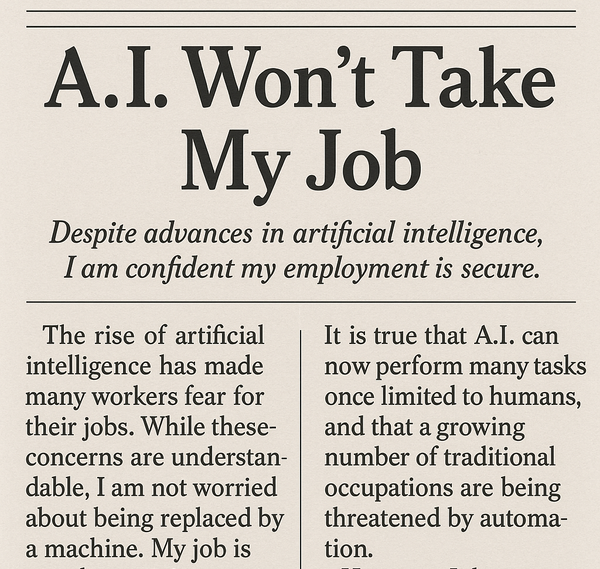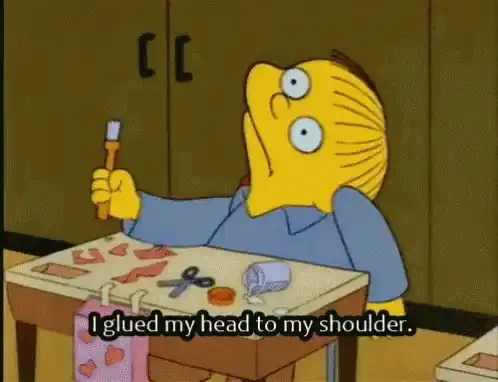Sunday scaries to quit your job
👻 Sunday scaries is a slang describing the anxiety of starting the next workweek. The best time of the week to think about quitting or quiet quitting.

Surprise! An email on a Sunday. I know it's been two weeks since my last update, so I'm making it up to you with back-to-back editions. 😁 A warm welcome to my new subscribers, Kevin and AJ.
I'm in the final stages of refreshing my Midtown apartment—installing new lighting, adding a dishwasher, and brightening the walls with fresh paint. I'm also sorting through the logistics of rent for November and December.
On the entertainment front, I've tried out two cozy games: Mineko's Night Market and Surviving Mars. While Mineko's Night Market suffered from significant lag issues, Surviving Mars presented a steep learning curve. It appears that following the success of Animal Crossing, many companies are attempting to cash in on the cozy game genre. However, few have managed to create a game that combines well-designed gameplay and content. If you want to indulge in a complaint about capitalism, consider watching this impressive assessment, Which SIM game has the toughest economy.

What's scarier than Sunday Scaries for Halloween? 👻 Sunday scaries is a slang describing the anxiety of starting the next workweek. The best time of the week to think about quitting or quiet quitting. Steven Bartlett published an analysis for when should you quit a project, and when should you persevere, see below diagram and videos:
Appreciate it mate! this was the framework I was referring to 👇🏽 https://t.co/SsdWkHsrdP pic.twitter.com/VS6A4EaPnH
— Steven Bartlett (@StevenBartlett) November 3, 2021
Deciding when to quit something—be it a job, a relationship, or a project—is a complicated and deeply personal choice influenced by a variety of factors. These can include:
- A fundamental clash with your values and ethics
- Negative impacts on your mental or physical health
- A lack of opportunities for growth and a sense of disengagement
- The presence of toxic individuals or a hostile work environment
- Feeling underappreciated or unable to find meaning and purpose in what you're doing.
It's important to recognize that having the option to quit is a luxury that not everyone can afford.
Over the past 18 years, I've left several jobs before reaching the two-year mark, while also staying in some longer than I should have. In my experience, people generally know why they should quit; the real question is when. Bartlett simplifies this decision. It's when the reward isn't worth the effort or when efforts no longer producing desired outcomes.
What's your lucid definition of "reward"?
When it comes to defining "reward," my perspective as a UX designer is to take a scientific approach in assessing desired outcomes and potential gains. Is the potential purely monetary? Not necessarily. While money is a basic need for paying bills and supporting a family, the definition of "reward" can also include intellectual satisfaction, recognition, or social status—these are highly individual interpretations of purpose and happiness.
When I say, "Money is not my driver," whether to my manager or friends, I often preface it with, "I know this might sound cliché, but it's true."
I'm after intellectual satisfaction. I navigate through ambiguous problems, formulate hypotheses, and brace for failure, which is a common outcome in the scientific method. In science, 9/10 times things fail. These failures are not setbacks but rather opportunities to pivot, reflect, and take corrective action. There is no endpoint to improvement—it's a constant cycle requiring years of sustained effort, often without immediate gratification.
For example, when it comes to leadership or managerial roles, becoming a "fearless leader" means you're constantly learning about leadership. The same applies to being a designer—it's about resilience, gaining new perspectives, and finding support.
I realize I lean towards "staying in discomfort" and celebrate grit as achievement. I am thinking about experimenting my ability to quit sooner than getting to "I overstayed my welcome."





